In the announcement of the conclusion of the inspection of the implementation of policies and laws in the state management of petroleum, the Government Inspectorate pointed out a series of violations by the "big guys" in the petroleum business. The most common are violations of the law related to the establishment, management and use of the Price Stabilization Fund (BOG) managed by the Ministry of Industry and Trade and the Ministry of Finance.
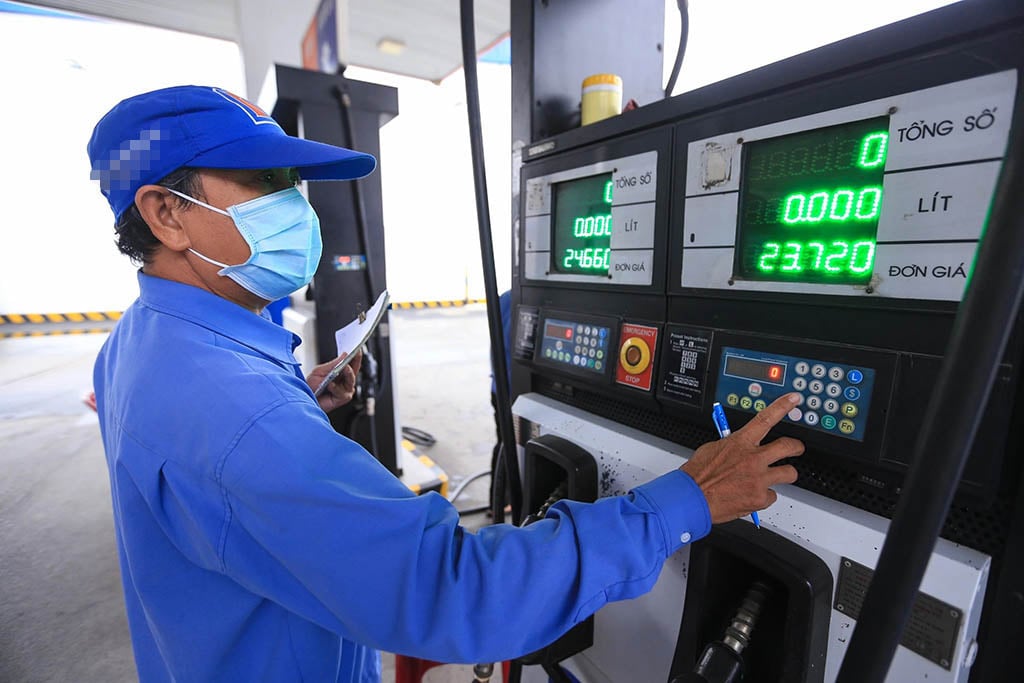
Many key enterprises violate the management and use of the Petroleum BOG Fund. Experts and retail enterprises propose to abolish this fund.
Trade expert Vu Vinh Phu
Long-term instability
Of these, 7/15 key petroleum traders used the BOG Fund for the wrong purpose of price stabilization, not transferring it to the fund account but leaving it in the payment account of the enterprise (DN) regularly for many periods before returning the BOG Fund with the amount of 7,927 billion VND. Among these, 3 key traders were administratively sanctioned by competent state agencies 3 times or more. They are Hai Ha Waterway Transport Company Limited which was fined 4 times, Xuyen Viet Oil Transport and Tourism Trading Company Limited which was fined 3 times, and Thien Minh Duc Group Joint Stock Company which was fined 3 times.
These are also the 3 enterprises that the Government Inspectorate has requested to transfer their files to the Ministry of Public Security's investigation agency for consideration and handling according to legal regulations. The violations of these 3 enterprises, in addition to not declaring and paying environmental protection tax on gasoline, the most common violation is related to using the BOG Fund for the wrong purpose...
At the time of inspection, the number of petroleum trading units nationwide included 38 main traders; 2 main production traders; 341 distributors; 18 general agents; 312 agents and 17,449 petroleum retail stores... The Government Inspectorate said that the shortcomings in the allocation, management and use of the BOG Fund had existed for many years but had not been promptly handled, leading to shirking of responsibility and lax management, affecting the effectiveness of the use of the BOG Fund.
According to trade expert Vu Vinh Phu, without waiting for the inspection conclusion, we can see the inadequacies in the management and use of the Petroleum BOG Fund. Previously, public opinion had many opinions about this inadequacy, but it seems that the management agencies did not care, or more accurately, "ignored" and let the violations happen.
"I said the problem is due to the money deducted from the BOG Fund by gasoline buyers, the Fund is managed by enterprises, and the authorities decide on its use. It is the loose management and operation of the fund that creates opportunities for enterprises to withdraw it for other purposes and misappropriate it. Besides, the punishment if discovered is not strict. That is not to mention the fund management when there is an incident, there is a shirking of responsibility as pointed out by the Government Inspectorate. Second, the deduction and use of the BOG Fund has long been reflected as not keeping up with world price fluctuations. Each time, 300 VND/liter is deducted, the price decreases by 5%, more is deducted, and the price increases by 7% before the fund is allowed to be released," Mr. Phu cited.
Mr. Nguyen Xuan Thang, Director of Au Hai Phat Petroleum Company, admitted that the recent floating of the Petroleum BOG Fund has led to consequences and inadequacies when handing over the management of the fund account to the main enterprise. "Using petroleum for stabilization will help increase profits for retail enterprises and stabilize prices for the market, instead of handing over money to a component in the petroleum supply chain to manage. This issue was also raised by me in my comments on the new decree on petroleum trading that the Ministry of Industry and Trade is seeking opinions on. In my opinion, the inadequacies and unreasonableness related to the Petroleum BOG Fund have been clearly seen, so the Petroleum BOG Fund should be abolished or converted into a source of petroleum distributed to the market. The purpose is to stabilize according to the decision of the executive agency," Mr. Thang emphasized.
What to do to stop the fund from being "unstable"?
In fact, to regulate gasoline prices and curb inflation, taxes and fees in gasoline import prices are considered one of the important tools of the BOG Fund.
However, the fund contains many risks and more importantly, it has "run out of power" when the cycle of adjusting gasoline prices decreases every week, closer to the world price. Expert Vu Vinh Phu analyzed: Recently, many opinions have assessed that this fund is not operating effectively, there must be an alternative solution. For the gasoline market to be effective, to avoid supply disruption, the most important thing is to reserve in kind the gasoline source, instead of leaving money in the fund and then operating as it is now. Modern trade theory holds that circulation without reserves is considered as no circulation. The whole country has 20 million tons of gasoline a year, but 7 days of reserve is not enough, it must be reserved for at least 3 to 6 months. In some countries, gasoline reserves are even profitable when buying low and selling high. Reserves do not have to be locked in gasoline warehouses but are assigned to economic accounting units, buying in, selling out in rotation, ensuring quality.
According to Mr. Phu, the petroleum market must be re-established, with enterprises being autonomous in accounting, taking profits and losses, freely choosing their buying and selling partners, and even allowing retailers to decide prices. In particular, there must be a "revolution in the petroleum distribution system" soon, in which intermediaries are cut out, going straight from supplying goods to retailing, not the current hierarchy and deciding costs. In addition, reserves should be converted into physical assets and the State should only manage the quality of goods, with fair competition. Otherwise, it should be assigned to a ministry to manage to avoid the situation of "too many fathers, children have difficulty getting married".
As one of the economists who proposed to abolish the Petroleum Price Stabilization Fund very early, Associate Professor Dr. Pham The Anh, National Economics University, once commented that this fund is "Vietnam's own creation" and has not achieved the goal of price stabilization. While other countries have switched to reserves using petroleum resources, Vietnam reserves using the BOG Fund and what has happened today is proof of the very early warning that the fund should be abolished and prices should be allowed to operate according to the market, freeing up resources for society.
"Basically, the BOG Fund does not help consumers reduce costs. It still operates in a way that people advance money into the fund and can be paid back in the next operating period, to reduce fluctuations when prices increase. However, in reality, when world oil prices fluctuate too much, whether or not there is a fund does not have much effect," said Associate Professor, Dr. Pham The Anh.
In 2022, he also analyzed and affirmed that the spending/deduction of the Petroleum BOG Fund "has problems" when the amount of oil products in the fund is greater than that of gasoline products. This leads to oil users "subsidizing" gasoline users, which increases inequality...
In fact, the management, supervision and post-audit related to the fund is not too difficult. Building a management mechanism to control the fund's cash flow through technology application is completely possible. In particular, it is necessary to soon clearly define the agency responsible for supervising the allocation and use along with regular control of the actual fund balance.
Only in special situations
The BOG Fund should only operate in special situations when the state wants to subsidize businesses and consumers, use excess revenue from petroleum-related revenues, shorten the time for price management, and restructure the petroleum market in a more competitive direction.
Associate Professor, Dr. Pham The Anh
Source link


![[Photo] Binh Trieu 1 Bridge has been completed, raised by 1.1m, and will open to traffic at the end of November.](https://vphoto.vietnam.vn/thumb/1200x675/vietnam/resource/IMAGE/2025/10/2/a6549e2a3b5848a1ba76a1ded6141fae)





![[Podcast] Hanoi opens 'Digital Store' on Shopee, bringing the capital's traders to the world](https://vphoto.vietnam.vn/thumb/402x226/vietnam/resource/IMAGE/2025/9/24/536e697cb68b4f638905088a9bebda6e)

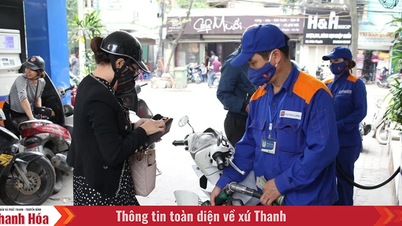

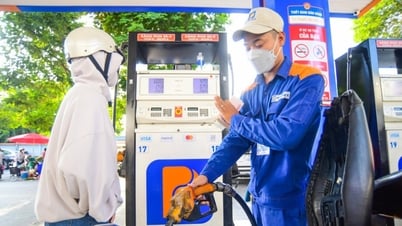




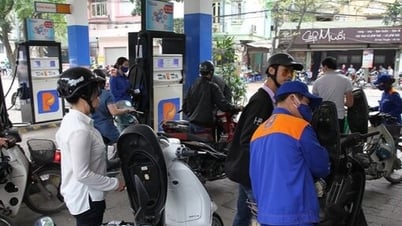



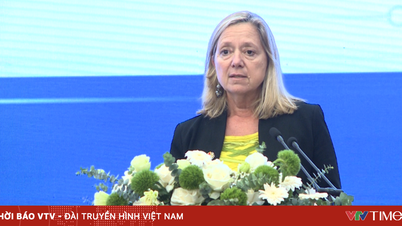

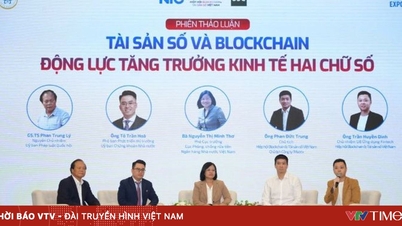









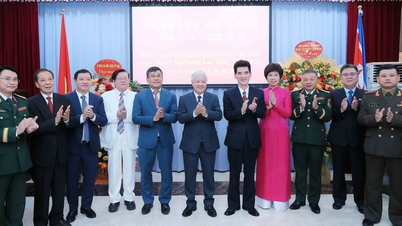























































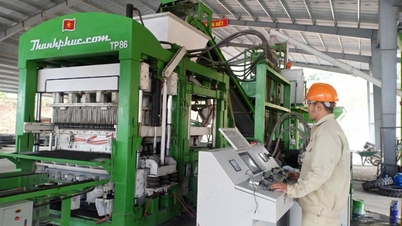













Comment (0)